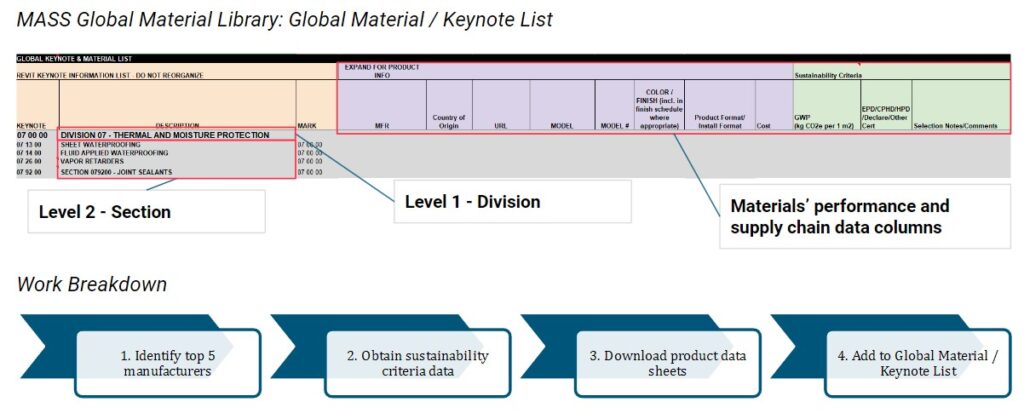Researching Performance Data and Supply Chains for Materials Library
Building materials and resources all have environmental, social, and economic impacts beyond just their use phase in a project. Unless we take action soon to reduce emissions arising from construction materials manufacturing, these emissions will continue to increase. MASS Design Group’s approach aims to minimize the environmental impact of construction projects. This project aimed to support MASS’s Building Integrity Council in vetting materials for performance, ethics, embodied carbon, and value while building out their materials library.
The objective of this project was to investigate and categorize building materials to feed into the design process while also contributing ideas for innovative methods of codifying and organizing data to maximize the way in which teams can leverage these resources.
The Fellow investigated and suggested metrics that can be used to quantify and demonstrate the environmental impacts of the materials, methods behind selecting the right materials, and top material manufacturers.
The metrics identified included Global Warming Potential, Environmental Product Declarations, baseline values, permeance, location of production, and recycled content. The 29 manufacturers for four categories of products (sheet waterproofing, fluid-applied waterproofing, vapor retarders, and joint sealants) were researched and added to the database, along with comparison tables and data analysis. Reports were also produced on sustainability criteria and the methodology used to identify products.

